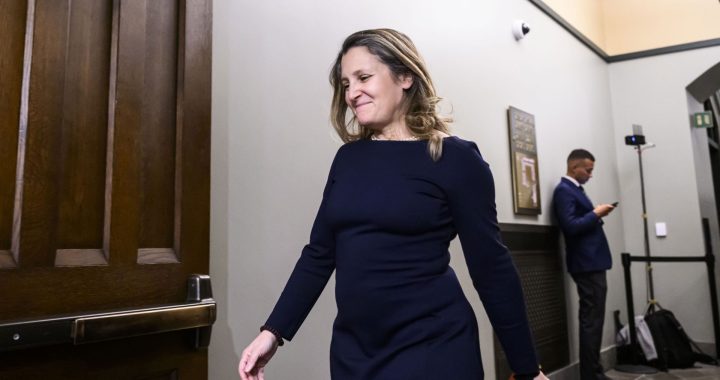An expert in Indigenous legal matters says regardless of what happens in Friday’s Supreme Court decision on Ottawa’s Indigenous child welfare legislation, the substance of the law will remain intact.
“This is a reference case,” Hadley Friedland, who is the academic director of the University of Alberta’s Wahkohtowin Law and Governance Lodge, told Nation to Nation. “It’s an advisory opinion. It’s not going to be something that could strike down the act like some of the cases we hear about.”
The Quebec government has challenged the constitutionally of Bill C-92 saying it infringes on its provincial jurisdiction.
The law was passed by the Trudeau government in 2019 in order to give First Nations, Inuit and Métis communities control of welfare services that affect their families and children.
Friedland said there are three basic rulings the Supreme Court could make on Friday: that the act is completely constitutional, parts of the law are unconstitutional or it is fully unconstitutional.
She also said should the Supreme Court rule against Quebec, the province would not have a valid legal argument to invoke the notwithstanding clause.
“The notwithstanding clause is something different. It would apply to a breach of Charter right. So, people’s individual and personal freedoms. This question is really about division of powers. About whether the province or the federal government has the power. I don’t see a space for the notwithstanding clause here.”
Bill C-53
A northern academic says the federal government likely had good intentions in drafting Bill C-53 – the proposed legislation that recognizes Métis governments in Alberta, Saskatchewan and Ontario – but the Liberals are guilty of trying to put too much in a single piece of legislation.
“I was perplexed when the bill came forward that they (federal government) put the three (Métis governments in Alberta, Saskatchewan and Ontario) together,” Yukon University professor Ken Coates said. “Manitoba was already on its own path and you have these three provinces taken out and put in an omnibus arrangement. It makes it easier, more convenient for the government but Saskatchewan’s not Manitoba and Alberta’s not Ontario. In one sense they could have made it easier by having a separate process for each of the Metis nations.”
The bill, which has now moved out of the committee stage and is set for third reading in the House of Commons, has been highly controversial drawing the ire of First Nations in Ontario who do not see the Métis Nation of Ontario as legitimate and say the legislation will be used to infringe on their inherent treaty and land rights.
The Manitoba Métis Federation is also opposed to including the MNO in the legislation.
At the same time, Coates said the federal government got it right by including the word “treaty” in the bill.
“If you don’t have a treaty what you have is an agreement and an agreement is subject to political processes, to sort of being defunded down the line or have the government change its mind and go in a different direction,” he said.
Mental health programming
A First Nations doctor says it is essential that any mental health initiatives targeted at Indigenous youth contain a cultural component.
“Through their voices, they’ve stated it allows them to feel proud, it allows them to hold their heads higher, to acknowledge their language and ancestors,” Dr. Lana Potts of Deloitte Canada said. “We know that being able to say, ‘I’m Indigenous and I am proud,’ is linked to better mental health.
Potts was speaking to Nation to Nation about a new report released by Deloitte that surveys Indigenous youth and what they would like to see in mental health programming going forward.












